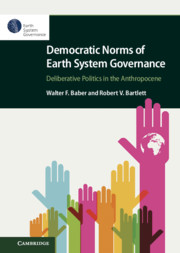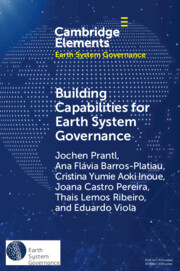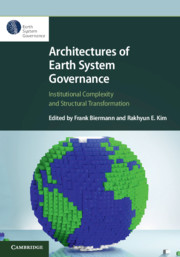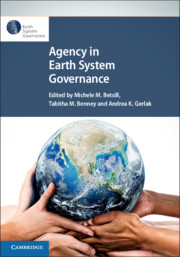Democratic Norms of Earth System Governance
Deliberative democracy is well-suited to the challenges of governing in the Anthropocene. But deliberative democratic practices are only suited to these challenges to the extent that five prerequisites - empoweredness, embeddedness, experimentality, equivocality, and equitableness - are successfully institutionalized. Governance must be: created by those it addresses, applicable equally to all, capable of learning from (and adapting to) experience, rationally grounded, and internalized by those who adopt and experience it. This book analyzes these five major normative principles, pairing each with one of the Earth System Governance Project's analytical problems to provide an in-depth discussion of the minimal conditions for environmental governance that can be truly sustainable. It is ideal for scholars and graduate students in global environmental politics, earth system governance, and international environmental policy. This is one of a series of publications associated with the Earth System Governance Project. For more publications, see www.cambridge.org/earth-system-governance.
- Provides an accessible but in-depth analysis of the overlapping ideas found in three scholarly literatures: deliberative environmental democratic governance, the analytic problems of effective earth system governance, and the practical governance challenges posed by the conditions of the Anthropocene
- Concludes that successful environmental governance at multiple levels can only be achieved by embracing principles and adopting normative rules for complex institutions that can effectively and justly exercise responsibilities for protecting the rest of nature (in all its complexity) from humans and humans (in all their diversity) from themselves
- Illustrates the minimal conditions for environmental governance that can be truly sustainable because it is just, ecologically sound, and genuinely democratic
Product details
April 2021Hardback
9781108831222
260 pages
244 × 170 × 14 mm
0.551kg
Available
Table of Contents
- 1. Democratic Governance in the Anthropocene: Equivocal, Experimental, Equitable, Empowered, Embedded
- 2. Toward a Consensual Earth System Governance
- 3. Empowered Democratic Agency in the Anthropocene: Reconciling People to Nature and Each Other
- 4. Embedded Governance Architecture in the Anthropocene: The Structure of Institutionalized Ecological Rationality
- 5. Experimental Adaptiveness in the Anthropocene: Reconciling Communities and Institutions to Environmental Change
- 6. Equivocal Democratic Accountability in the Anthropocene: Where Effective Legislatures Don't Exist
- 7. Equitable Access and Allocation in the Anthropocene: Reconciling Today and Tomorrow
- 8. Earth System Democracy: Governing Humanity in the Anthropocene
- Afterword: Governance by Uncommon Global Environmental Law?
- Bibliography
- Endnotes
- Index.









